#prince joseph poniatowski maréchal polonais de napoléon
Explore tagged Tumblr posts
Photo
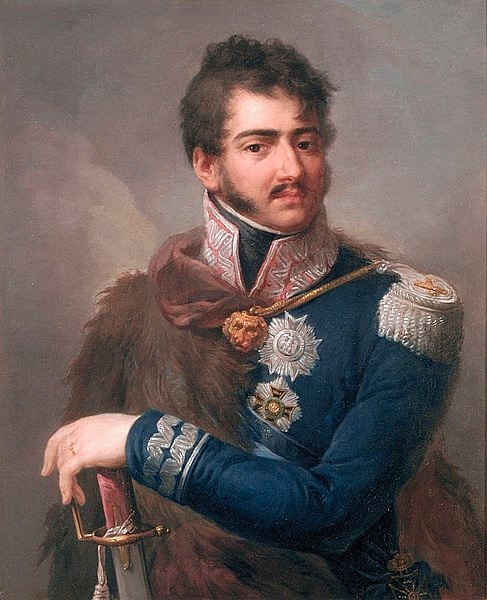
Prince Joseph Poniatowski
Le prince Joseph Poniatowski (1763-1813) était un soldat et un patriote polonais qui fut commandant en chef de l'armée polonaise pendant les guerres napoléoniennes (1803-1815). Allié indéfectible de l'empereur français Napoléon Ier (r. de 1804 à 1814 ; 1815), Poniatowski fut nommé maréchal de l'Empire français quelques jours seulement avant d'être tué à la bataille de Leipzig.
Lire la suite...
0 notes
Text
Napoleon to Las Cases (Memorial 18 to 19 November 1816): "The real king of Poland was Poniatowski, he united all the titles and he had all the talents."
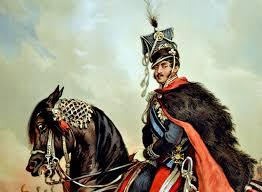
Aleksander Fredro: "On his dashing horse, this valiant rider endowed with an inflexible bravery, a superb honor, a beautiful stature, represented, with his black mustache, his chapska tilted to the side, the ideal of the Polish chief of war. Standing above the bank of hell, he cried: "With me children!" and they leaped after him into hell. "
Countess Anne Potocka: "Never was a man more worthy than Prince Jozef to command the fifty thousand brave men who already served under his command. Adored by the soldiers whose dangers and fatigues he shared, he obtained from them, at the slightest sign, what others achieved through strict discipline. "

Savary: "There was no braver than the prince; impetuous, magnanimous, full of amiability, he was as regretted by the party he served as esteemed by the one he had fought."
***
Source - Alain Pigeard: Prince Joseph Poniatowski, maréchal polonais de Napoléon.
#napoleonic#jozef poniatowski#alain pigeard#prince joseph poniatowski maréchal polonais de napoléon#contemporaries' judgements
21 notes
·
View notes
Text
“An active child... not very disposed towards his studies”
In 1764 his uncle becomes the last king of an independent Poland when Joseph is only one year old; he is only ten years old on the death of his father in 1773. He is an active child, intelligent, high-spirited, but not very disposed towards his studies. Endowed with a charming visage, with a magnificent stature, strangely adroit at all exercises of the body, with a noble soul and ambitious spirit, intelligent and studious in spurts. First he is a student in Vienna, then in Prague. Fortunately for the young Joseph, his uncle, King Stanislaus August who calls him his "dear Pepi," doesn't cease, once learning of his brother's passing, to show him the greatest solicitude and to behave towards him as his true guardian. His first care, is to have him assigned new "starosties"* in Wielona, in Samogitia**, so that he can be raised with the dignity befitting his position as a prince of the blood.
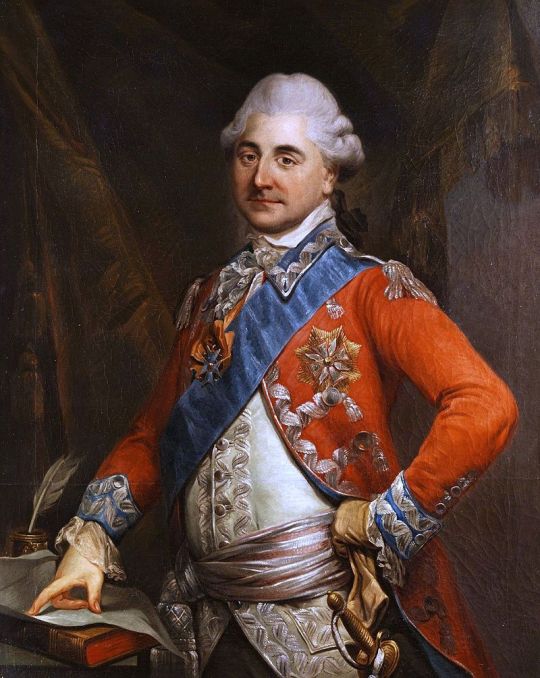
[Stanisław August Poniatowski, commonly known as Stanislaus II Augustus; uncle of Prince Jòzef Poniatowski, and the last king of Poland]
Despite his noble blood, and being a child of two distinguished families, he has no great fortune. His uncle, the king, will be prepared for all of this. Furthermore, he invites him to come to Warsaw almost every year, presents him to the court, acquaints him with the members of his family and assists with the fêtes given in his honor by the representatives of the Polish nobility. Studies do not seem of much interest to the young man who prudently skimps on his chores. The king encourages him in his work and has him make precise reports of his progress or his failings; he even sends the scores obtained for everything related to history and the art of war. The tutors are all foreigners: the German Koenigsfeld directs his physical exercises and teaches him horsemanship; the Frenchman Hennequin directs his academic studies; the Englishman Plunkett--who will become a general under the Empire--teaches military instruction, and another Englishman, Lindsey, a theologian by profession, teaches him this subject. Since his first years the young prince learns to speak Polish, but without managing to write it correctly; he writes and speaks fluently in German and English, as well as French.
The old monarch is pleased to see in his nephew, the qualities that he himself once possessed, and those that he always lacked. He loves in the young man his rectitude, his nascent heroism, his spirit of sacrifice and his honor. In 1777, the young prince is presented to the Emperor Joseph II, coming to Prague to attend to military maneuvers. The sovereign, anxious since the division of Poland to conciliate the good graces of the country's young aristocrats, seeks to attract them to serve under his flags and urges him to follow the example of his father in taking service in the Austrian army. On the maternal side of his family, fully committed to the Habsburg cause, he is strongly encouraged to make a career in the imperial army, enjoying the prestige of the uniform. The young man, fourteen years of age, has the appearance of a frail adolescent with a thin face, with an expression of amusing gravity and a sweet and tranquil look. He is attracted by all things military, the uniforms, the horse, the taste for arms, but he wants, however, to obtain the approval of his uncle, the king of Poland. The latter accepts, but the engagement in the Austrian army must only take place for a predetermined time. Furthermore, he must be able to put his talents to the service of his true fatherland if the need should make itself felt. So he does not join the corps of the Noble Guards of Galicia, instituted in political views of denationalization; after all, this province has always been coveted by both Austria and Poland. In 1778, the adolescent is named sous-lieutenant in the Austrian army: he is fifteen years old!
Source: Alain Pigeard, Prince Joseph Poniatowski: Maréchal Polonais de Napoléon, 2017, pages 13-15.
*starosty = a castle or domain conferred on a nobleman for life **Samogitia is a region in modern-day northwest Lithuania
#Jòzef Poniatowski#Napoleon's marshals#Stanis��aw August Poniatowski#translations#history#18th century
13 notes
·
View notes
Text
Let him in!
[..] The news of the victory of Wagram arrived on July 6. Poniatowski heads for Krakow, forcing the Austrian commander to immediately sign a surrender; the prince should normally make a formal entry there the next day when he is informed that the Austrians are secretly introducing into the place detachments of Russian cavalry from the Karl Sievers brigade. The Russian general wants in fact to get ahead of Poniatowski in Krakow. On July 18, at daybreak, the Polish general is at the gates of the city. A squadron of Russian hussars bar the entrance to the street leading to the bridge. The prince spurs his horse and throws himself into the enemy ranks with such impetuosity that he knocks down several riders. The Russian generals move away and the Polish army follows its leader.
Alain Pigeard - Prince Joseph Poniatowski, maréchal polonais de Napoléon
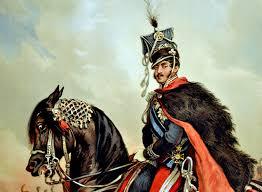
#napoleonic#alain pigeard#prince joseph poniatowski maréchal polonais de napoléon#jozef poniatowski#let him in!
13 notes
·
View notes
Text
On November 27 [1806], at 6 p.m., a squadron of the 13th Chasseurs à cheval, the vanguard of Cavalry General Milhaud, galloped near the Wola barrier and stationed near the church of the Bernardins. On the 28th, Murat set out at the head of the entire cavalry reserve to enter the Polish capital. It was a cold but beautiful day. At 4 pm, the prince went out to the gates of the city to meet Murat who was at the head of his horsemen; he welcomed Napoleon's lieutenant and wore his Prussian decorations on his chest. A deputation, made up of Gutakowski, Malachowski, Kochanowski, General Woyczynski and General Gielgud, received Prince Murat at the gates of the city. In the midst of an indescribable enthusiasm, Napoleon's brother-in-law entered the Polish capital. The trades, with their flags, accompanied the passage of the troops. Countess Anna Potocka wrote: "The euphoria was at its height, the whole city lit up as if by magic. Certainly, that day, it was not necessary for the authorities to take care of housing the newcomers, they were argued over, snatched up, it was to who would receive them best. Those of the bourgeoisie who, not knowing French, could not make themselves understood, used a silent language, which is of every country and, by its signs of joy, handshakes, bursts of joy, made their hosts understand that they wholeheartedly offered them all that the house contained, the cellar included. Tables were set up in the streets, and in the squares, more than one toast was raised to the future independence, to the brave army of the great Napoleon! There were embraces, fraternization, even a little too much drinking , for the soldiers ended up indulging in excesses which momentarily cooled the enthusiasm with which they had been received." Poniatowski had a long interview with Murat on the 28th; he told him about a possible restoration of the kingdom of Poland, whose crown could not be better worn than by a French prince. Nothing more was needed to make Murat dream, he who loved the chivalrous soul of the Poles. Murat, who was staying at the Raczynski Palace in Warsaw, wrote to Napoleon: "I must speak to Your Majesty of the enthusiasm which has flared up today in Warsaw at the approach of Your Majesty's troops; it is impossible for me to to describe it to you, I have never seen a national spirit so strongly pronounced. I entered this city with the thousand times repeated cries of Long live the Emperor Napoleon our liberator! " After the 30th arrived the austere Marshal Davout at the head of the Third Corps: the victors of the Prussians at Auerstaedt.
For centuries Poland had been an elective monarchy with foreigners on its throne, including the Hungarian Bathory dynasty and even the future Henry III of France, who would prefer the throne of his country to that of Poland. Poniatowski added that he was ready to sacrifice himself for the Polish cause but not for a foreign sovereign. Murat therefore sent a report to Napoleon which concludes in a reasonable man, unjustly suspected of favoring Prussia or Russia, a good Pole in a word.
Alain Pigeard - Prince Joseph Poniatowski, maréchal polonais de Napoléon
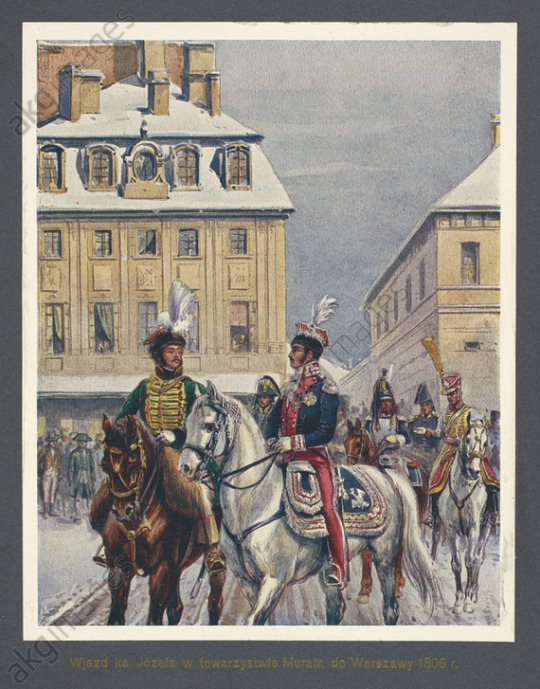
#napoleonic#alain pigeard#prince joseph poniatowski maréchal polonais de napoléon#jozef poniatowski#joachim murat#murat is: I FOUND MY BRO 🤩🤩🤩#france & poland#i just wish it could have been more and lasted longer
13 notes
·
View notes